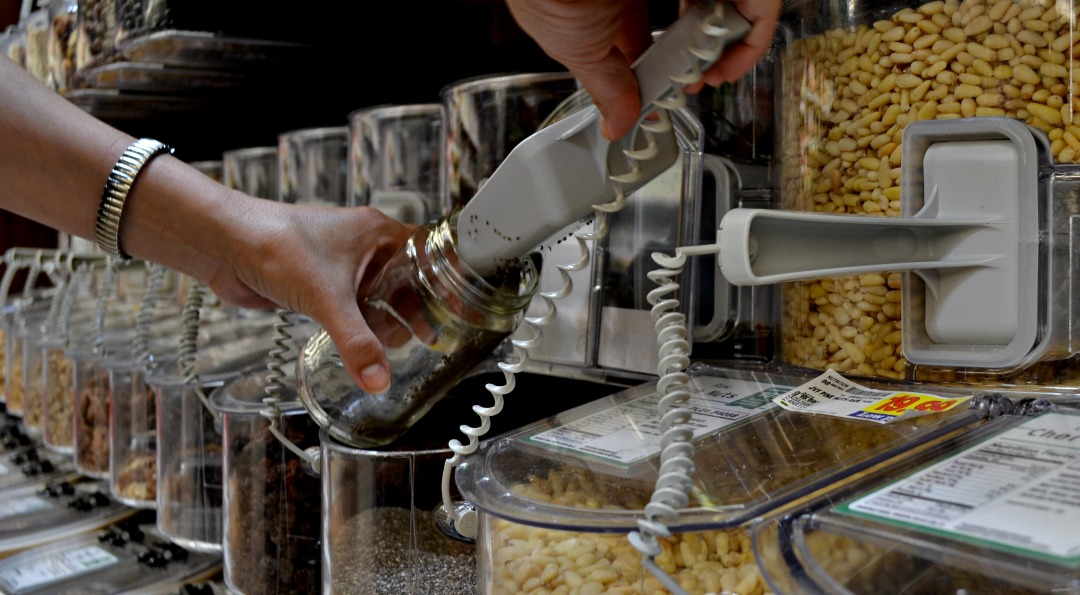Kroger’s bulk section offers ecologically safe buying options
Kroger customers have available free plastic bags with ties to gather their bulk items. This Kroger customer did not want to use the plastic bags, but rather a more eco-friendly option, like a glass container. Customers have the option to bring these eco-friendly items but must measure them accordingly or pay an extra $2 for the container.
August 28, 2017
Waste: a mindless discard of a seemingly unimportant object. This careless act now catches up to us. According to The United States Environmental Protection Agency (EPA), the average American produces 4.4 pounds of trash per day, resulting in nearly a ton of waste a year. This waste ends up in landfills and oceans, killing millions of animals.
Most people aware of this problem do not take action simply because of the lack of inconvenience. The Plastic Pollution Coalition started a movement to inform the public of the need to reduce plastic waste that ends up in landfills and oceans.
However, bulk shopping offers a more eco friendly solution, as consists of purchasing food products without any excess packaging. Essentially, customers will bring their own containers to avoid use of plastic.
As environmentally minded customers, our global footprint presents importance. With the lack of health food stores nearby, customers may find comfort in hearing that Kroger recently added a new bulk section, providing a zero packaging alternative to normal shopping. Targeting those aware of the plastic landfill pollution and want to reduce waste.
Hearing that Kroger stores in the area added bulk sections made me ecstatic to utilize a new opportunity to reduce my carbon footprint.
Unfortunately, I quickly realized my lack of preparation. Ideally,one would take their container’s weight so that the container does not add any extra charge. Usually, glass jars weigh anywhere from .5 pounds to 1.5 pounds, and because Kroger charges by the pound, some may end up paying more than just the product. Therefore, more preparation than expected becomes required since weighing bag is needed and then transferred to a separate container.
The lack of employee help when checking out complicates a customer’s trip and takes a toll on the shopper’s patience. After spending 20 minutes looking for a worker to help, they did not understand the system and could not help me. The worker ended up using a plastic bag, even after I specified my purpose of avoiding plastic.
The system needs improvement and more preparation, but overall proves useful. It makes eco-friendly shopping more accessible for those not living in ecologically aware cities. Although providing a limited selection of food, the bulk section hits most of the basics necessities such as grains, beans, and snacks. It also saves money because it encourages people to only buy what they need. I would recommend that you keep reusable and cotton weighing bags in your car to facilitate your trips. Although my lack of preparation hindered my first experience, bulk shopping provides resources to making our lives more ecologically efficient.
The Chant’s grade: B







